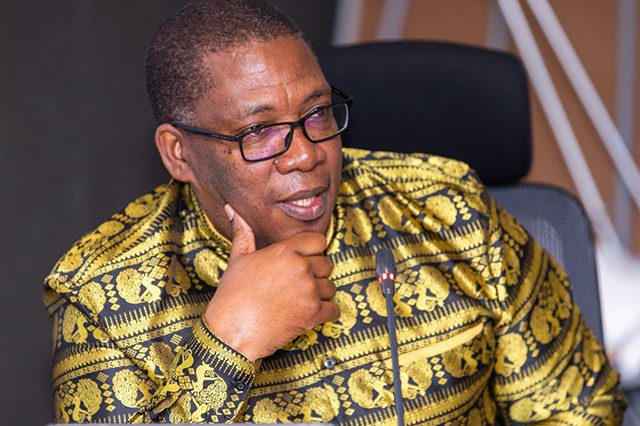By Betha Madhomu
Johannesburg mayor and ANC chairperson Dada Morero’s recent retraction of his proposal to employ foreign nationals in the Johannesburg Metropolitan Police Department (JMPD) offers a revealing glimpse into the intricate power dynamics and internal politics within the African National Congress (ANC).
Morero’s suggestion, though rooted in a practical concern—overcoming language barriers in crime-fighting—quickly became a lightning rod for criticism, exposing deeper fissures within the party.
At face value, Morero’s proposal was a response to a legitimate issue: the language barriers that often hinder law enforcement in a city as diverse as Johannesburg.
His suggestion that properly documented foreign nationals be recruited to help bridge these gaps was, in his own words, meant to provoke serious debate within the ANC’s regional executive committee (REC).
However, the backlash he faced, particularly from Gauteng ANC chairperson Panyaza Lesufi, was swift and severe, leading to a public retraction and apology.
“We don’t agree with this proposal. We held discussions with our Regional Chairperson and Executive Mayor @CdeDada who advised us that the ANC Johannesburg Lekgotla rejected his proposal and he fully accepts the decision not to entertain this proposal further.
We don’t agree with this proposal. We held discussions with our Regional Chairperson and Executive Mayor @CdeDada who advised us that the ANC Johannesburg Lekgotla rejected his proposal and he fully accepts the decision not to entertain this proposal further. We remain committed… https://t.co/KQIl9Dzfpt
— Panyaza Lesufi (@Lesufi) August 25, 2024
“We remain committed to ensure that our law enforcement agencies are appropriately trained to tackle challenges created by crime. Our sincerest apologies for the confusion and pain caused by this proposal,” Lesufi said.
This incident is more than just a policy misstep; it is emblematic of the ANC’s ongoing struggle to balance populism with governance, and to navigate the competing interests within its ranks.
Lesufi’s outright rejection of Morero’s proposal is a clear indication of the ideological battles being fought within the party. On one side, there are leaders like Morero, who are willing to explore unconventional solutions to complex problems, even at the risk of controversy.
On the other, there are those like Lesufi, who are deeply aware of the political sensitivities surrounding issues of immigration and employment in a country grappling with high unemployment and xenophobia.
The rapid dismissal of Morero’s idea also underscores the ANC’s precarious position as it tries to maintain unity in the face of diverging views.
The party’s leadership is acutely aware that any proposal perceived as undermining South African citizens’ job security—especially in law enforcement—would be politically explosive.
Lesufi’s intervention was as much about protecting the ANC’s image as it was about upholding party policy.
By distancing the party from Morero’s proposal, Lesufi sought to reaffirm the ANC’s commitment to prioritising South African workers, a stance that is likely aimed at appeasing both the electorate and factions within the party that are increasingly critical of perceived leniency towards foreign nationals.
Morero’s quick capitulation also raises questions about the extent of his influence within the ANC. His initial proposal, while well-intentioned, may have been a miscalculation of the party’s current political climate.
The fact that he was forced to publicly retract and apologise suggests that his standing within the ANC, particularly in Gauteng, may not be as strong as he might have hoped.
The African National Congress (ANC) welcomes the apology and unconditional withdrawal of proposal made by Comrade Dada Morero, Mayor of Johannesburg at the ANC Greater Johannesburg Regional Lekgotla this weekend.#LetsDoMoreTogether pic.twitter.com/AL5SrJSjIv
— ANC SECRETARY GENERAL | Fikile Mbalula (@MbalulaFikile) August 26, 2024
It also highlights the reality that within the ANC, regional power brokers like Lesufi wield considerable influence, capable of swiftly shutting down ideas that do not align with the broader party agenda.
The episode also reflects the ANC’s broader struggle to develop coherent policies in a rapidly changing socio-political landscape.
As the party continues to grapple with issues of migration, unemployment, and crime, it will need to find a way to address these challenges without alienating key constituencies.
This incident shows that the ANC is still trying to figure out how to navigate these waters, and it remains to be seen whether it can do so without further alienating its base or fracturing its internal cohesion.
In the end, Morero’s proposal and its subsequent rejection serve as a microcosm of the larger political tensions within the ANC. It reveals a party that is deeply divided on how to handle some of the most pressing issues facing South Africa today.
As the ANC continues to navigate these internal battles, it will be crucial for its leaders to find a way to reconcile these differences and present a unified front to the public.
Whether they can do so without sacrificing bold ideas in the process remains an open question.
Follow African Insider on Facebook, Twitter and Instagram
Picture: X/@GautengProvince
For more African news, visit Africaninsider.com


